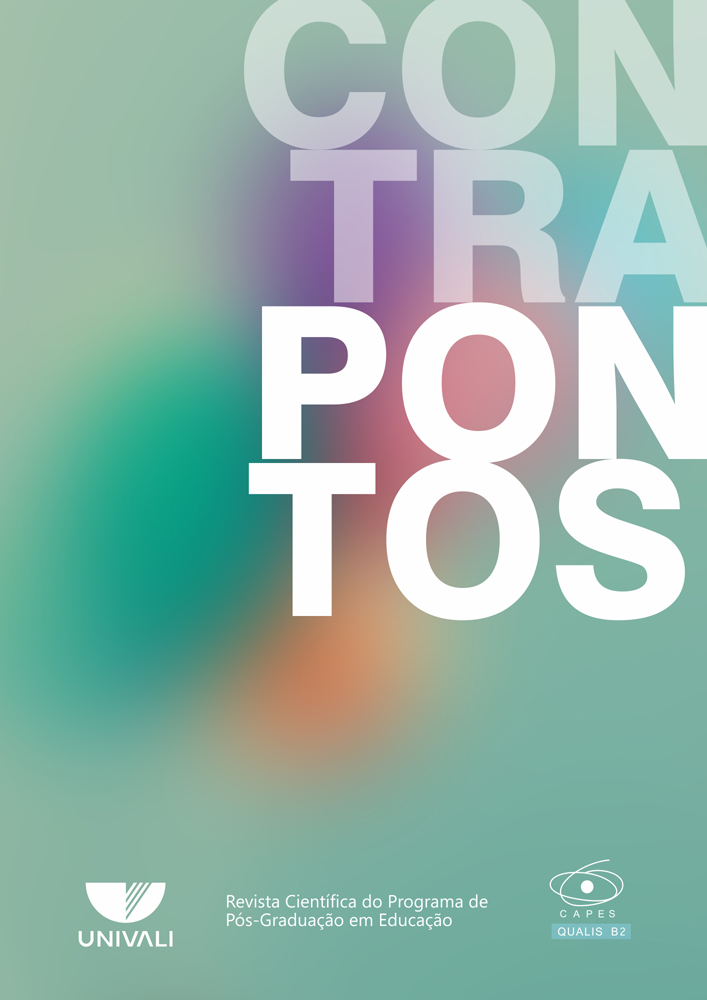ETHICAL & AESTHETIC FORMATION IN ELEMENTARY EDUCATION: UNDERSTANDINGS AND IMPLICATIONS FOR TEACHER’S ACTIONS
DOI:
https://doi.org/10.14210/contrapontos.v22n2.p89-107Abstract
This paper addresses the understanding of a group of educators about ethical-aesthetic formation in the school. Its objective is to analyze how early childhood and elementary school teachers of a school in Porto Alegre, in the Brazilian state of Rio Grande do Sul, understand the ethical-aesthetic education of their students, and the possible implications of this understanding. The theoretical framework was based on the concepts of education, ethics,
and aesthetics. The technique of content analysis was used to interpret the data, and the
research results were categorized into four thematic axes: education as integral formation
for well-being; ethical formation and the common good; aesthetic perception and creative
imagination; and pedagogical practices and ethical-aesthetic formation. The research shows
that ethical-aesthetic formation is the subject of reflection and action by educators, but there
is a gap between theoretical conception, planning and pedagogical practice.
Downloads
Published
Issue
Section
License

This work is licensed under a Creative Commons Attribution 4.0 International License.
Upon acceptance of an article, the author gives full rights of the work to Contrapontos., but retains the authorship. The published work is considered collaboration. Thus, its author will not get paid nor will s/he be charged by Contrapontos. The responsibility of the article solely goes to the authors. Citations and transcriptions are allowed by mentioning the sources.
Â

This work is licensed under a Creative Commons Attribution 4.0 International License.

